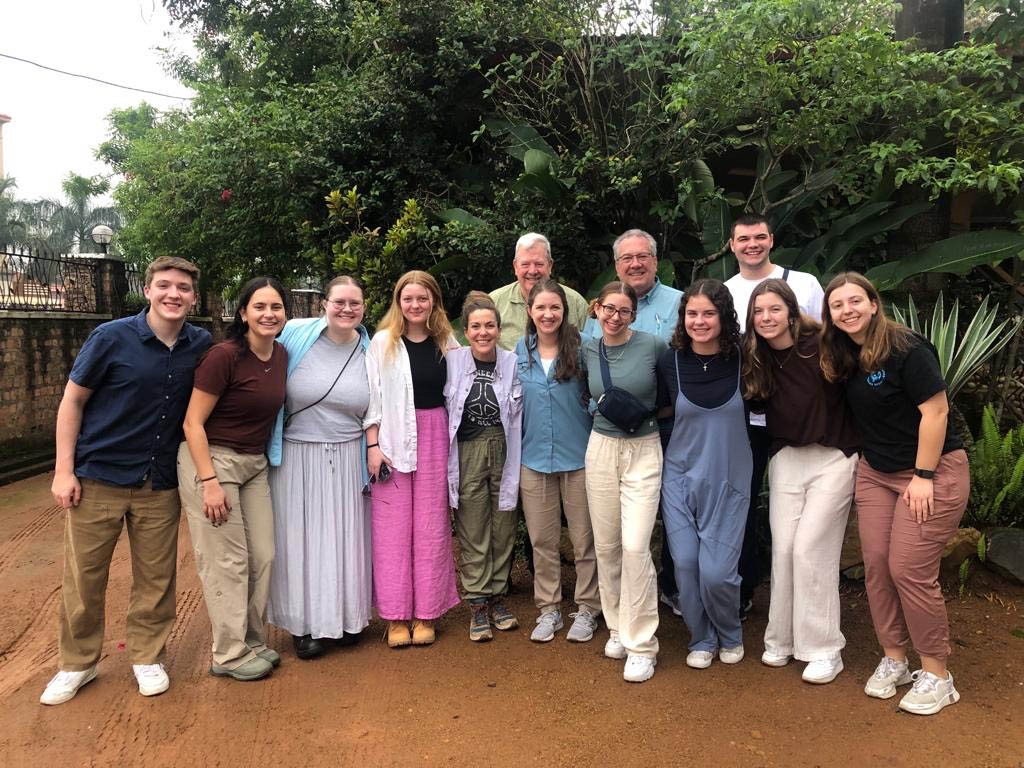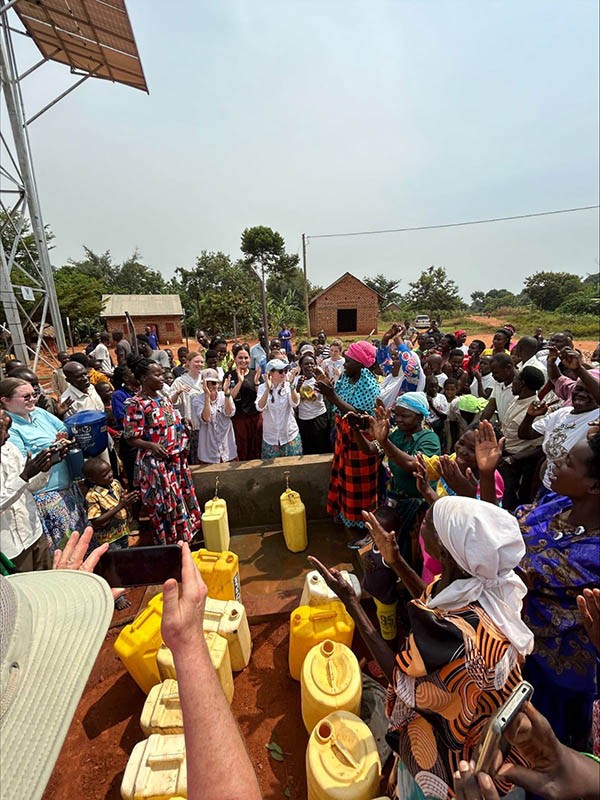Villanova Engineering Students Tackle Water and Sanitation Challenges in Uganda

Group photo in Entebbe
A group of nine Civil and Environmental Engineering students traveled to Uganda in January to work on senior capstone projects addressing critical water and sanitation concerns.
Led by Assistant Professor Kelly Good, PhD, PE, Associate Professor Virginia Smith, PhD, and Professor Rob Traver, PhD, PE, the group met with residents and visited project sites in pursuit of developing a solar-powered well pump system to expand residents’ water access and designing safer latrines for students at a local school. The seven-day trip was coordinated in collaboration with the Kibo Group, a Uganda-based nonprofit, and Divine Water, an organization founded by Jim Mynaugh ’80 ChE.
While the Divine Water capstone course is in its third year, this was the first year that students had the opportunity to visit Uganda for their projects. In previous years, students relied on Google Maps, videoconferencing and other virtual tools to learn about the location’s infrastructure and the problems they were attempting to solve. This year’s seniors were able to connect in person with the village’s residents, teachers and parents to hear their concerns about their current conditions and gather critical information to refine their designs.
“At its core, engineering is about people,” Dr. Good says. “As engineers, we often get caught up in the numbers and practical things, like ‘How will the pump run?’ This gave us an opportunity to focus on the relationship piece.”

Buraswa Water System Commissioning
Despite the distance, last year’s students successfully designed a solar-powered system that distributes water to six taps throughout a village that previously had only one water-access point. As a thank-you, residents of the village invited this year’s team to a festive celebration with local food, music and dancing. The revelry drove home the importance of the team’s projects.
“For the students to see this big celebration one day, and the next to sit in tough conversations with residents and parents about their needs, it helped them understand why the residents were celebrating,” Dr. Smith says. “This is a bridge to a safer lifestyle for the next generation, and that’s what’s driving this work.”
The capstone projects focus on enhancing water accessibility and addressing sanitation issues in the village of Bupaluka, about 170 km northeast of Uganda’s capital, Kampala. One group of seniors aims to develop a solar-powered well-pump system to replace the existing hand-pump well in the town, ensuring equitable distribution of water to thousands of residents. A second is working with a primary school that has only two functioning latrine stalls for over 800 students. The group aims to design safer, more efficient latrines, as well as a rainwater harvesting system for handwashing to address a sanitation issue that, in some cases, has prevented students from attending school.
Emma Olson ’24 CE says she was inspired by the opportunity to hear from residents and visit the site where their project will be implemented. Seeing in person the designs of previous Villanova students “made us consider limitations we may not have thought of before,” she adds.
By the end of this spring, both groups will hand over completed design plans to the Kibo Group, who will work with the village’s residents to have their projects constructed. If all goes well, another group of Villanova students will be able to visit next year to see these creations completed and prepare for the next.
